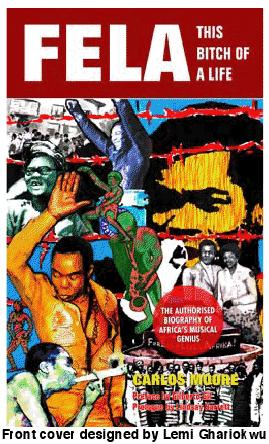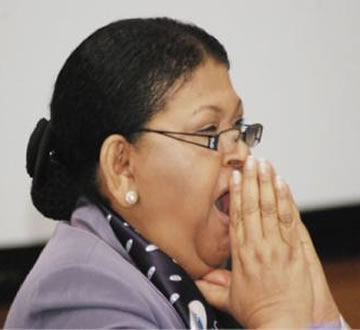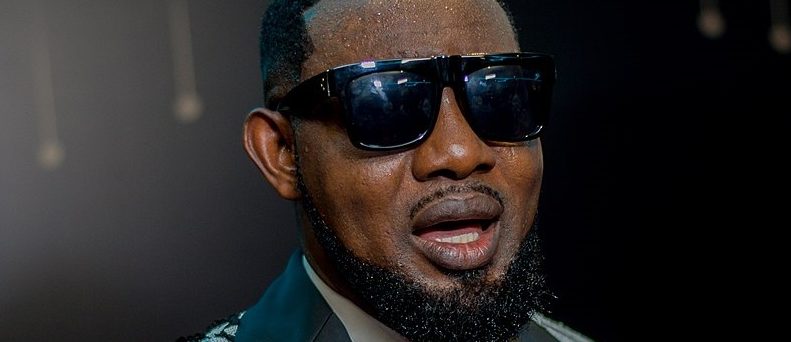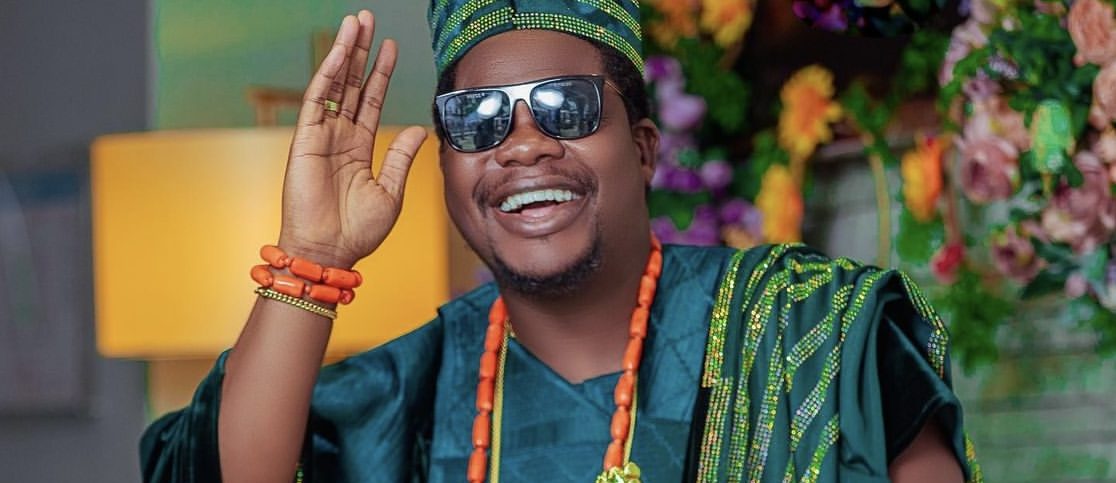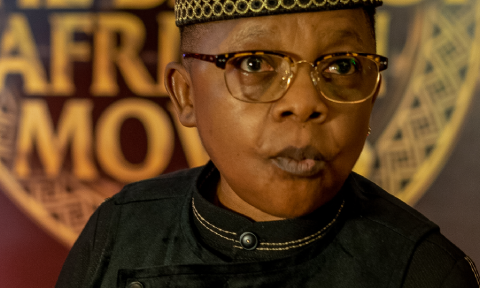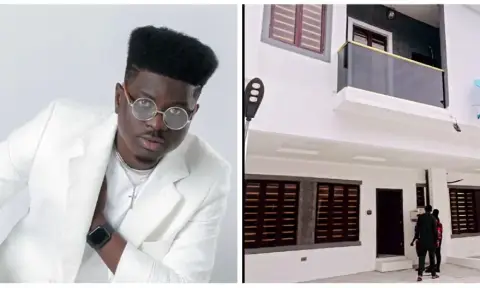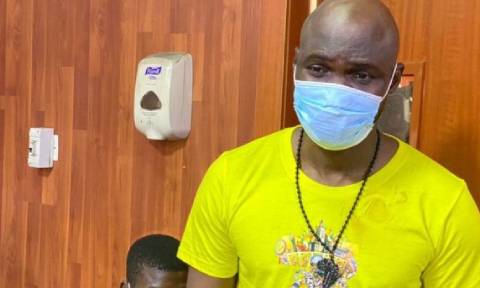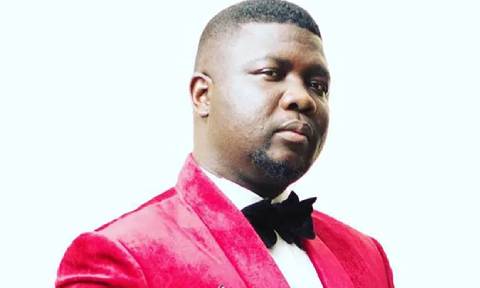The name Lepacious Bose is not new to the comedy industry. The bulky, ‘voluminous’ and beautiful comedienne started comedy like child’s play during her days as an undergraduate at University of Ibadan. With seriousness and commitment, Bose has grown to become a formidable force to reckon with in the industry. Her size and jokes have combined to endear her to lovers of comedy. In this exclusive interview, she opened up on her foray into the industry, her failed acting ambition and the challenges associated with being a female comedian.
Excerpts:
Background
My full name is Abosede Olufunke Oseyemi Ogunkoye. Contrary to what people say, Ogunboye doesn’t mean I am from Ogun State. I am from Ondo State. Both of my parents are from Ondo State. I come from a small family and I am the last born. I studied Theatre Arts at University of Ibadan, and I went back to study Law. I was called to the Bar at the Nigeria Law School, Abuja.
As the last child of the family, you must have been over-pampered
No. When I was growing up, I was drilled and treated like my other siblings. I learnt how to talk faster. You have to fight for your rights, defend yourself and know what is due to you. I don’t think I was over-pampered. I got favour from my parents, but I wasn’t pampered. I was brought up like any other child.
You had a degree in Theatre Arts, and you decided to settle for comedy when you could have ended up as an actress.
I thought you are going to say that I abandoned my Law degree for comedy. As a Theatre Arts graduate, whether you dance, act or you are a comedian or whatever you choose to do, it is all part of the theatre art. You learn stagecraft. You learn how to study the audience and carry them along. So, I don’t think I abandoned Theatre Arts.
Is comedy part of Theatre Arts curriculum?
Comedy is part of Theatre Arts. It’s a fusion. It doesn’t stand on its own. It’s just that in Nigeria, comedy is a developing industry. That is why you can’t study comedy or would you want to study comedy. Believe me, I think a time is coming that comedy is going to be a course in the Theatre Arts degree programme in the university. As a matter of fact, I remember we actually studied comedy in Theatre Arts. It’s just that we didn’t study stand-up comedy. We study the history of comedy, how it all started and what-have-you. So it’s part of Theatre Arts.
After graduation, did you try your hands on any other thing?
When I finished school as a Theatre Arts graduate, I didn’t have the time to try my hands on anything. As soon as I graduated, I was back to school again for my Law degree. When I finished as a Theatre Arts graduate and came back in the pursuit of my Law degree, I tried my hands on some casting jobs and auditions. Generally, I don’t like Nollywood structures. I don’t like the policy of Nollywood, the face-to-face thing. I don’t think I am patient enough to cope in Nollywood and the way they do their stuff.
You don’t like the way Nollywood do their stuff, in what respect?
I don’t think I have the energy to go into what they do and how they do their stuff. It’s just that in those days, when I was going for these casting jobs, you read for a particular director and he praised you to high heaven “Oh, fantastic! You are so good. Where have you been? You are so talented. Bla bla bla.” They tell you they will get back to you. The next thing, you would be watching the movie or series on TV.
Were you schemed out?
I don’t know. I think it’s just because I don’t know the game. I don’t know what next to do after reading. Some people know what they are supposed to do after reading, maybe either you call the director, call the casting director, meet with somebody or know somebody somewhere. I didn’t know anybody. I wasn’t connected through anybody. All that happened was that I saw an advert somewhere calling for audition and I went, just like any other person. I did my own part and I left expecting to be contacted. All I am saying is that, there is something I am supposed to do after the audition that I didn’t do and I didn’t know anybody that could have informed me in that direction, unlike comedy. Comedy is a kind of welcoming hands, open hands, ready to welcome whoever wants to come in. Somehow, you meet somebody that believes in you. Somehow, the person uses you, keeps you and encourages you. A show comes where you perform and your talent is known. Somehow, somebody watches you and recommends you to someone else to use you and then you begin to move from there. Comedy is not complicated at all.
Before going further, you said earlier that you were not called after auditioning because you didn’t know anybody. Does it have to do with the sex-for-role syndrome in Nollywood?
I am not in Nollywood, so I don’t know about that rumour of sex-for-role. Even as at then, I didn’t know the rumour that was going on. I went for different auditions, commended and sat down to be called for a role which never came. You media people have a way of misquoting people. Tomorrow, it will be in the news that ‘Lepacious Bose said that Nollywood is…’. Let me emphasize it categorically that I have not said anything like that. What I said is this, after the audition, there must be something I was supposed to do, or maybe my performance wasn’t impressive. I graduated from Theatre Arts with flying colours, but I don’t know what they wanted. My point is that comedy is less complicated. You don’t need to know anybody in comedy. You just have to be talented. You just need a window of opportunity to display your talent. Once you get that window, things begin to fall in place, though you will not become a millionaire overnight. But things begin to fall in place unlike in Nollywood where your talent is dependent on somebody else, either be a director or the scriptwriter. It’s now I heard that they have a Guild of Actors, they have this and that. You don’t know which of them is genuine. Even if I want to act now, I don’t know what their process is. Better still, there is no process, except you really have a friend that is inside the industry that tells you how to go about it.
From your explanation, was it like you were frustrated out of Nollywood?
I wasn’t frustrated. I was just disappointed. You can’t say attending two or three auditions without success amounts to frustration. There must have been people that have gone for auditions at the same time I started. Some have gone for auditions ten or fifteen times, and today, they are doing fine. They must have made up their mind that “I must keep trying until I get there.” A colleague was telling me her experiences when she started and how she almost gave up. But today, she is a star. Maybe if I have had that patience to keep trying, it would have paid off. Nothing good comes easy, but I don’t have that patience.
What would be your reaction if a director or a producer wants you behind closed doors?
You are asking me that kind of question? As you are talking to me now, what do you think would have been my reaction?
I believe some desperate would-be-stars…
(Cuts-in) No, not some people, you are talking to me. The way you have been talking to me, and the way I have been answering you, do I look like that kind of person that would have accepted that offer?
You said, you were disappointed. So is it right to say you came into comedy out of the disappointment you experienced?
No. As at that time, I didn’t know comedy could be a career. All I knew was that I loved performing before large crowds. I was just after whatsoever that will put me on stage. I wasn’t really interested in what that thing might be. Right from when I was younger, I have always liked being on stage. That urge to always perform on stage is what was pushing me to those auditions. When you study Theatre Arts, you can be anything you want to be. It’s a versatile course. I don’t know about other schools, but University of Ibadan Theatre Arts degree programme equips you to be whatever you want to be. I could have been involved in cultural dance. I could have been anything I wanted to be within the Theatre Arts profession.
At what point did you begin to take comedy seriously?
I have always been a comedian. It’s just that I didn’t know that comedy could be a profession. It was just something I was doing right from when I was at University of Ibadan. I was part of a group called Zakomenia Organization, a comedy group which normally organized shows when I was at the university. After the graduation of my brother who was the anchorman, I was contacted to be the new anchorman. I told them I couldn’t be anchor because I don’t know how to go about it. But they insisted it was my brother that was anchoring it, so why can’t I do the same? Since we are of the same parents, there must be madness in our blood. The first time I went on stage, really, was a mad experience. I was high. I was so happy and excited. It was like this is what I was born to do. It became something that we did every semester. I was growing even in the campus environment. Almost everybody knew about me. I didn’t even have a stage name then…
(cuts-in) You didn’t have a stage name then, so when did you start answering the name Lepacious Bose?
As at that time, there was no need for a stage name. I was just Bose. In fact, I wasn’t even using Bose, which was funny. At that time, I was trying to differentiate my personal life from my stage life. So I used my second name which was Funke. I was well-recognized and well-appreciated. So that was how I started. When I graduated from Law School, I came to Lagos. I was called for a show where I performed. All this while, I was still Bose until some guys called from Ghana looking for me to perform at their event. They said they wanted Funke. Most comedians knew me as Bose, so they were trying to describe me. I felt I have gotten to a point where I needed a stage name, and as at then, most of my friends always called me “Orobo” and I always replied them, na me bi Lepa now, na una bi Orobo. So it wasn’t something that I sat down and said, I want to start comedy and this is the stage name I want to use. Everything just fell into place naturally.
Is it right to say comedy picked up?
I have already said that. I do tell people that I didn’t discover comedy, comedy discovered me. It was just that God gave me that talent and the talent brought me out.
Were you paid as an anchor for Zakomenia?
Oh! Zakomenia was crazy! All I ever got then after the show was one or two bottles of coke. And I had to fight to get even the one bottle.
Seems like a whole lot of fun
I don’t know whether it was fun, but it was crazy. But after a while, when I started anchoring, they started packaging something worthwhile for me that I can hold on to.
So how much was your first pay?
My first pay was N100, N80 or something. It was a lot of money then.
When was that?
Oh! That was a long time ago. It was around 1994.
But when you came to Lagos, there must have been some people who helped you to rise in your career as a comedian
I don’t know before now. Me, I be mumu o. I am telling you the truth. Even when I came to Lagos and I heard about how comedians are charging N200,000 or N300,000 for a show, I was surprised and I was like, “Are they mad? What are they saying? Is it not what I am saying that they are saying?” That is why I keep saying that when I came in, I didn’t know that comedy was an industry. I didn’t know that there were people doing it professionally. All I knew was that there was one guy called Ali Baba. Apart from him, I don’t think I heard of any other person.
Not even Mandy?
No, I didn’t hear all these names. All I heard was that there are some guys organizing Night of a Thousand Laughs and they are paying people o. Now, they are charging N200,000 for wedding events and all that. And I was saying to myself, ‘Ordinary wedding event that I can even anchor without collecting money from anybody? Is it not the same jokes we’re cracking? And I am even funnier than some of them’. That was my thinking back then. So, when I came to Lagos and I keep hearing these sayings, all I was asking was, “When are they having this show? Where is this show taking place? Who are the people behind it?” I just needed to understand what these shows were all about until I went to perform at one event where I met Owen G, Koffi and Julius Agwu. At that time, I was already hearing those names. So after my performance, it was like, “Oh! You are fantastic! Where have you been?”
Which particular event was that?
In fact, I can’t even remember the name of that event. Owen G, Koffi and Julius Agwu were all invited, too. The person never paid me, neither did he pay Owen G nor Koffi, but if he paid Julius, I don’t know. The person is still owing us, if you know what I mean. But I believe the person who put that event together did it for me, Koffi and Owen G to meet because that was how it all started. The day I met Owen G, the story changed.
How do you come about your jokes?
I don’t even know. Before now, I said I draw my jokes from my personal experience and the society. The truth is that these jokes just come from God. The Bible says that there is a spirit in a man that gives him understanding which is the inspiration of God. Inspiration comes from almighty God. I have noticed that when I start jokes with God, I mean when God and I are connected, everything comes naturally.
What are some of the challenging moments?
As a comedian, you are responsible to your audience. There are certain jokes that you drop that will make people roll on the floor with laughter. And there are times you hear some comedians say they forget their jokes. It does not mean they don’t have jokes, but it’s just that they forget the jokes at that particular time. When you have performed for a particular crowd before, and you want to perform for them again, you want to say new things and not the old jokes they have heard before. As a comedian, if you forget your jokes, you can always fall back on your old jokes.
What is your opinion about jokes’ piracy currently rocking the industry?
In every industry, there is a lot of competition. In the comedy industry, there is no structure, there is no law, there are no rules that say this is what is to be done and this is what not to be done. There is nobody and no stipulation. So how can you lay claim to a joke and say this joke is mine?
Has any fellow comedian used your jokes and how did you feel?
How will you feel if you have a joke and you hear a fellow comedian cracking that joke before an audience, and you are in the audience? Comedy is not something that you just stand up and start talking. Before going on stage, you must have arranged the jokes in an order in which you intend to crack them. So if somebody cracked one of those jokes, he or she has already destabilised your arrangement.
Have you ever been to an event and felt intimidated by the presence of your male colleagues?
That has never happened to me. Forget it! To be intimidated because they are male? No. I am never intimidated. I am overwhelmed by the fact that certain comedians will be there and that will now make me assemble more materials to match them on stage. Not whether they are male or female. In comedy, we don’t have female comedians. We are all men. Na una dey call them male or female comedians. When we are all together, you will know that we are all men.
Tracing the origin of female comedians, who do you think started it, Mandy, Princess or you?
Ahhh! That one no bi question at all. Mandy was the first woman to break into comedy fifteen years ago. Ah! That question answered itself. Mandy has been in this business for over fifteen years. When did Princess start? Even me, I started before Princess. It’s just that Princess got the recognition before me because she started in Lagos. I started comedy at the University of Ibadan way back 1994. Where was Princess then? But Ibadan is not like Lagos. Before I graduated and came to Lagos, nobody knew me. She started at Unilag, people saw her and from there, she got the quick recognition.
What about Najite Dede, you started before her?
Najite Dede and I attended U.I. together. Najite wasn’t a comedian when she was in U.I. So Najite can’t say she started comedy before Mandy ither. But between Princess and Najite, I can’t even tell you who started first. As I said earlier, I didn’t even know the men who were into comedy then, it was the women that I knew. Who started it, to me, doesn’t even matter. It’s how far you will go that matters. Even if I know, I wouldn’t even answer it. All I know is that somebody started it. Even when I was in U.I, Mandy had the Beach Jamz Show which was her own personal show. Ahhh! I can’t disrespect somebody like that o.
Would you then say that you looked up to her?
I didn’t look up to her. I just recognized the fact that she was in the business. Because when I started, it was just a joke. It wasn’t something that I thought I was going to do. It’s not like now that people know who Lepacious Bose is. Who Princess is and who Mandy is. All you see on TV is one girl jumping on stage. You can only look up to somebody when you follow the person’s footsteps and say this is what I wanted to do and this is who I want to be like. I didn’t really follow her. I am answering your question as regards where I started from. All I know is that when I was in school, Mandy had already started comedy.
Are you married?
I am very much single. I believe my fans know that because most of my jokes revolve around marriage and relationships. So, my fans will definitely tell you that I am single.
But you are in a relationship?
That is a private thing. I don’t discuss my relationship on the pages of national newspapers.
Now that you are in a relationship…
(Cuts-in) I didn’t say I am in a relationship or not in a relationship. That information, I told you, is not for the press.
You are on the big side. Has it ever been of a disadvantage to you?
It’s been of disadvantage so many times. I have come out of it. I am good at it. I am comfortable with my weight and I am okay with it.
In what ways has it been of a disadvantage to you?
Generally, there is the belief that when you are big, you are not smart. They don’t expect you to act like any other human being. But I have put that behind me. I have created a brand with being big. I have created a career with being big. It has worked for me. It’s not like before when I do complain about my size “Oh, I am too big. I will kill myself, oh…!”
If you are not in a relationship, how have you been able to cope without a man. I believe there are times that you will long for the touch of a man?
It’s easy to stay without men. Maybe the question you are asking me is living without men after being married or growing up without a man?
No, staying alone without a man all this while.
Okay! It’s easy, em em em, if you are somebody that doesn’t want to jump into any kind of relationship. Or you want a particular kind of relationship, then you have to wait.
How does it feel not feeling the touch of a man for a long time?
It’s not a good feeling for anybody, be it a man or a woman. Even for a man who has five girlfriends, you will still have that feeling for that particular one that can understand you and connect with you. Everybody needs that connection. There is nobody that doesn’t need that connection.
